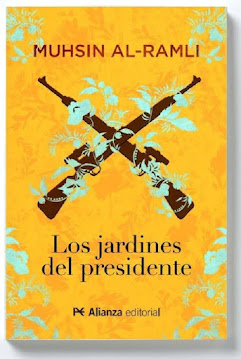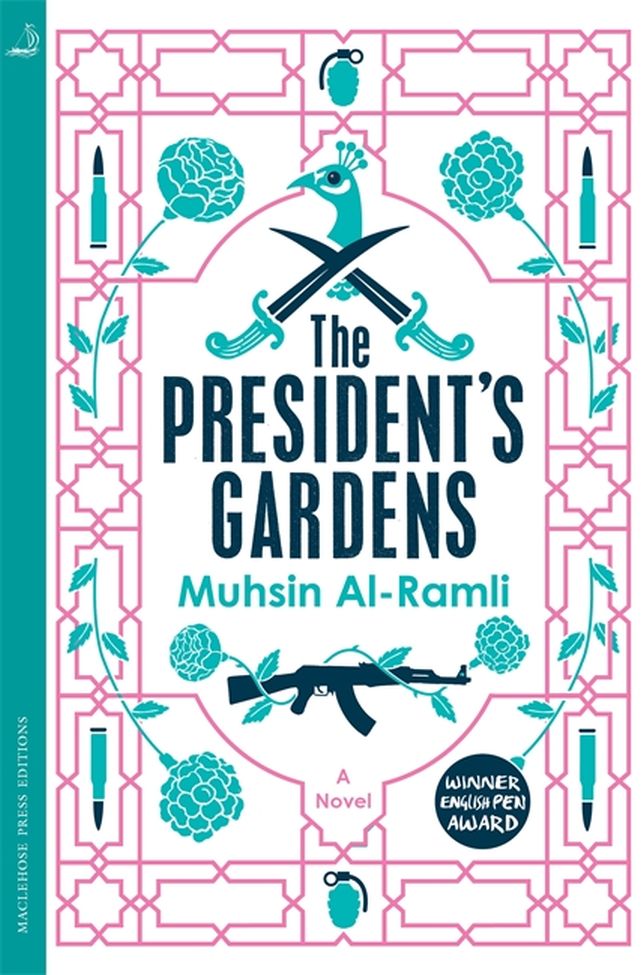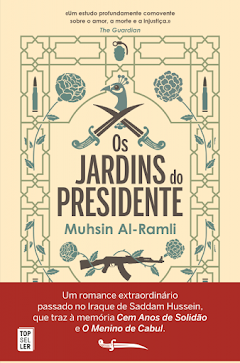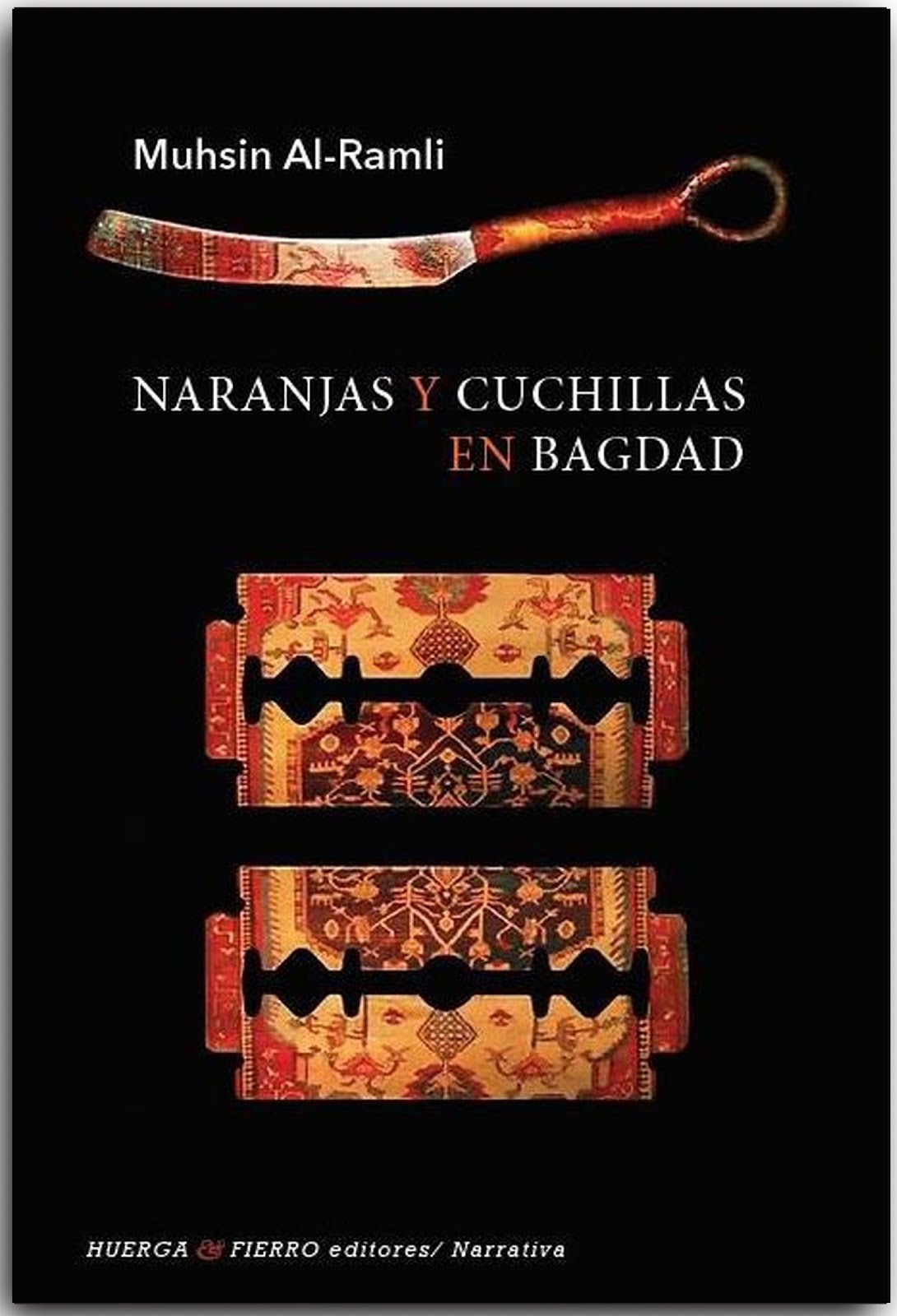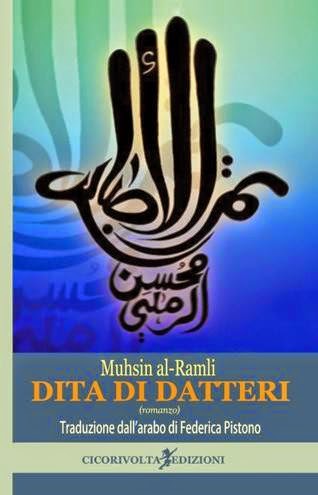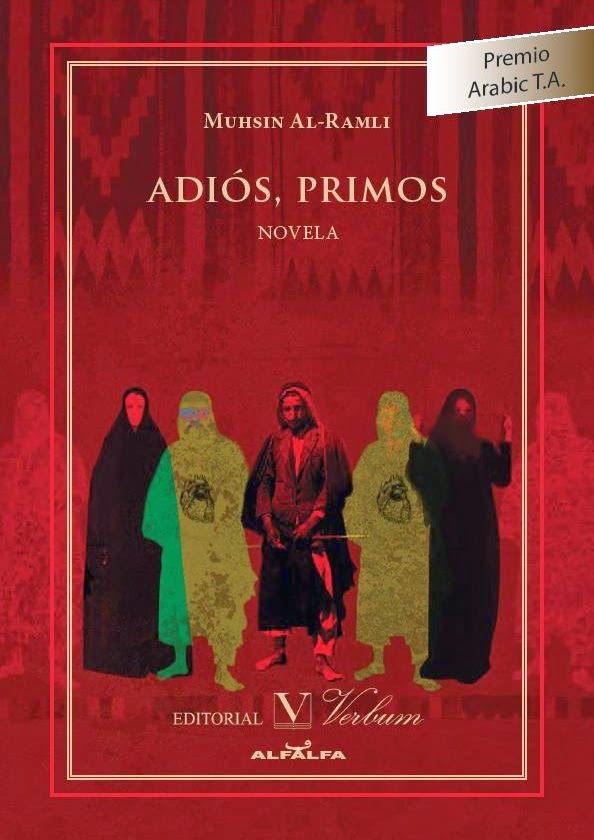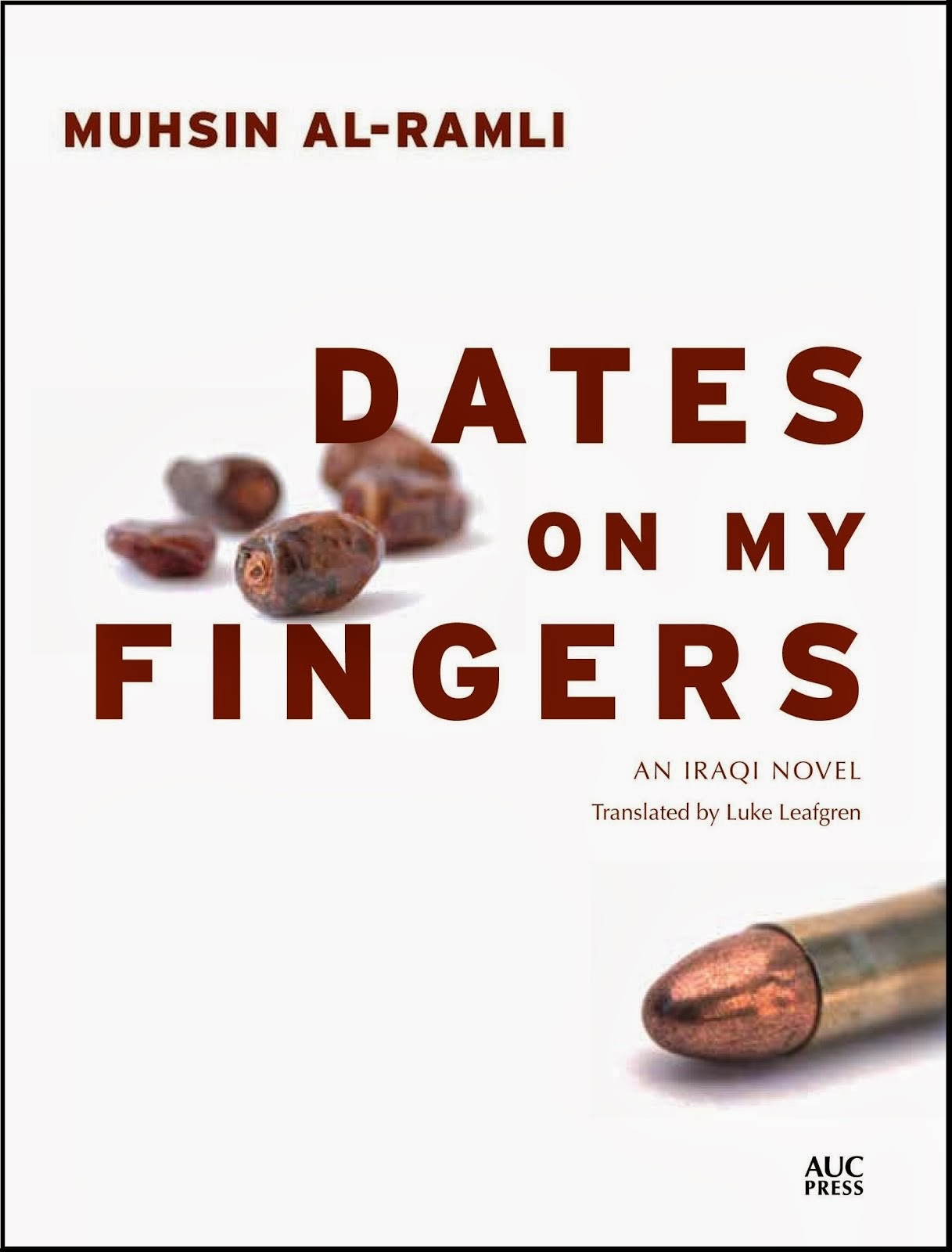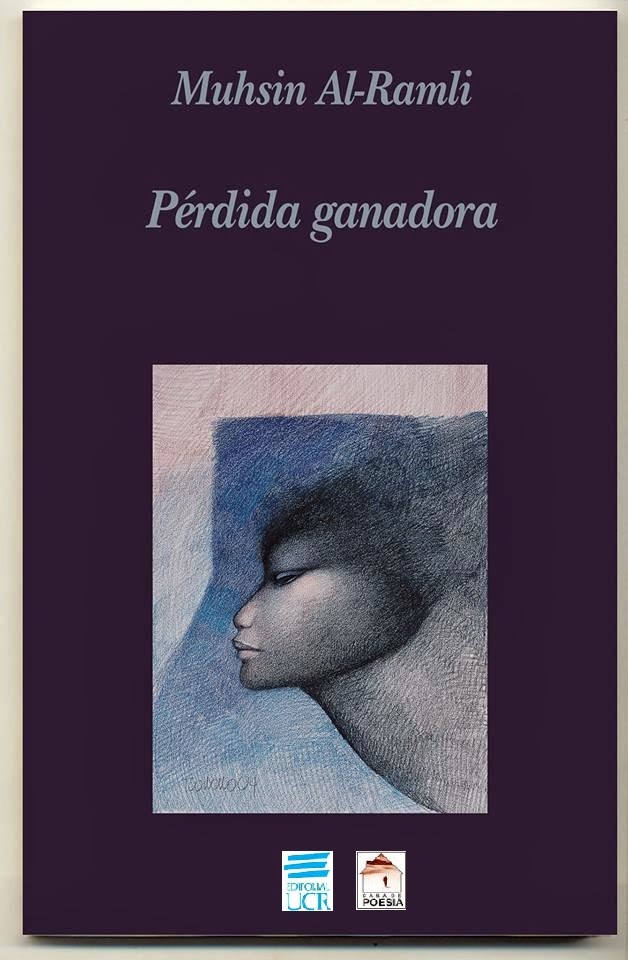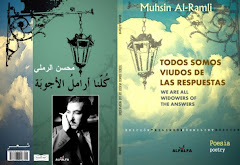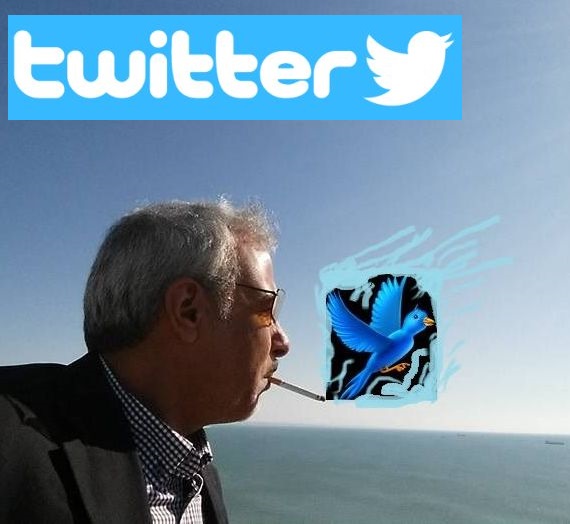The
incompatible and the inextricable
Clare Roberts - reviews
Dates
on My Fingers
By Muhsin Al-Ramli
Translated by Luke Leafgren
AUC Press, Cairo, February 2014
ISBN:9789774166440. Pbk, 192 pp,
£12.99/$16.95
When Saleem stumbles across his father
by chance in a Madrid nightclub, he barely recognises him but for an old
keychain made from a single copper bullet. This bullet has long acted as a
potent reminder of an oath for
revenge,
made years earlier in their Iraqi homeland. The reunion of father and son in
this radically different environment should bring only joy, but instead it
unmasks a festering obsession.
Saleem comes from a large, conservative
family living an isolated existence near Tikrit. The indisputable leader of
this clan is Saleem’s grandfather Mutlaq, whose maxim, harkening back to a
childhood experience, is: “If a dog barks at you, don’t bark at it; but if it
bites you, bite it back!” This mantra lies at the core of the family’s
mentality, and is put to the test when Saleem’s father, Noah, takes revenge on
a man who has groped his young daughter by forcing two copper bullets up his
anus. But this man is an important government official, and before long Noah is
arrested and tortured, losing the function of his reproductive organs. A
revenge attack, in which the men of his family storm the building in which Noah
is being held, spurs his release, but this attack has brutal, bloody
repercussions on the wider family, prompting Saleem’s decision to leave Iraq
for good and Noah’s promise to take revenge on the official who first inflicted
so much shame on his family. When Noah learns that this official has been
posted to Spain, he too moves to Madrid. Noah’s plan for revenge is clear, the
copper bullet on his keychain indicative of the way in which he intends to
carry it out.
With a focus on Saleem’s own
experiences, including his very first sexual encounters with his childhood
sweetheart in their Iraqi village and his confusion regarding his impotent
father’s passionate relationship, the date fruit takes on a somewhat curious
significance. But the use of this sweet fruit in the lovemaking of all the
characters is more than just an unusual preference shared by the men in
Saleem’s family. Dates, a symbol of Iraq, also act as a constant reminder of
their roots. Even in exile, their homeland clings to both men as the nectar of
dates sticks to their fingers.
Any sweetness in the novel, however,
only serves to exacerbate its underlying bitterness. When Noah announces his
decision to move to Germany, supposedly to start a new life with Rosa, we learn
that the very government official who prompted Noah’s move to Madrid has been
posted to Berlin. This telling detail interrupts a euphoric final description
of Saleem’s engagement to Fatima, family reconciliations and happy future
plans. It is in this ending that the novel’s dark and chilling genius lies.
Dates
on My Fingers is first and foremost an exploration of exile in the modern
world, where the incompatible collides with the inextricable. When Noah hires
Fatima, a pious Moroccan girl, to work in his nightclub – a veritable den of
alcohol, lust and sin it is conditional on her memorising the Qur’anic Surah of
the Cow rather than any display of aptitude. It is an intriguing detail:
despite the extremes Noah goes to in his exile, he is nevertheless drawn to
those who share his roots. Living in a modern European capital, a world away
from their isolated community in Iraq, father and son cope with their exile in
different ways: Saleem by papering over the walls of his apartment with
newspaper cuttings about Iraq, and Noah by dyeing his hair, getting drunk, and
groping women – another irony Saleem struggles to comprehend. When consumed by
his lust for revenge, a wilder Noah is released. At first this facilitates
lucid self-reflection, but ultimately exacerbates what he describes as the
“entangled nature in my soul”.
Al-Ramli, himself an Iraqi who has lived
in Madrid for many years, is all too aware that exile is not an escape. But the
difficult questions raised in this novel are, no doubt, a way of making sense
of his own entanglement.
*Published in Banipal
52 - New Fiction











